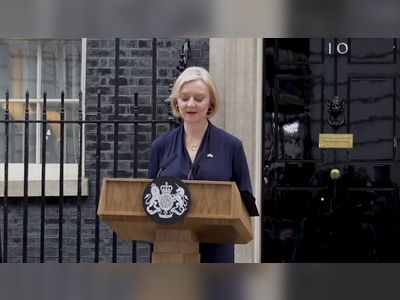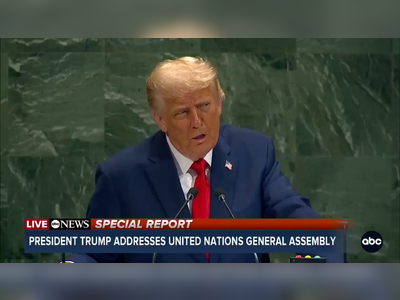
British Library Strike Exposes UK’s Shifting Cultural Priorities
Over 300 staff walk out at national institution over pay and funding as author Zadie Smith places spotlight on what Britain truly values
More than three hundred staff at the national library in London have staged a two-week strike in protest against pay offers they deem insufficient and a funding regime they say undervalues their cultural work.
The dispute centres on real-terms pay cuts in successive years, while the institution’s executives are reported to enjoy six-figure salaries and bonus-eligible packages.
The walkout, organised by the Public and Commercial Services union, follows a 98 per cent vote in favour of industrial action and aligns with the second anniversary of a major cyber-attack that disrupted library services and exposed staff data.
Workers claim that many are forced to hold second jobs or rely on loans or food-banks to make ends meet, despite holding advanced qualifications and playing key roles in one of Britain’s most significant cultural repositories.
Novelist Zadie Smith addressed a picket line outside the library, delivering a speech that critiqued the government’s cultural priorities and questioned whether Britain still values culture at all.
She argued that while Britain presents itself as a nation of Shakespeare and Austen, its treatment of cultural workers tells a different story: ‘‘Many people will begin to suspect … that in truth you do not value culture at all, and are in fact running a giant heritage museum in which the only cultural workers you respect are the dead ones.’’
The dispute arrives against a backdrop of a reduction in public investment: the Department for Culture, Media and Sport applied a 1.4 per cent cut in its latest funding review, at the same time as the government earmarked two billion pounds for its Artificial Intelligence Opportunities Action Plan.
Librarians see this as evidence of misplaced priorities.
A union survey found that seventy-one per cent of respondents believe their salary is insufficient to meet basic needs.
High-profile festival-and-event organisers and authors including Joe Hill have sided with the strikers, withdrawing from scheduled library events in solidarity.
The library’s reading rooms and major exhibitions have been affected by closures and delays due to the strike.
The board of the institution announced that its chief executive, Rebecca Lawrence, has stepped down mid-tenure, a move described by union officials as a further sign of institutional instability.
The action raises broader questions about national identity and cultural investment at a time when Britain seeks to project values of openness, literacy and creativity.
As Smith noted, ‘‘If you really want to know a nation … you might want to get thee to a library, any library, but especially the British Library.’’ The outcome of pay talks and whether the institution will secure renewed investment are now pivotal not only for staff, but for the wider cultural ecosystem in the UK.
The dispute centres on real-terms pay cuts in successive years, while the institution’s executives are reported to enjoy six-figure salaries and bonus-eligible packages.
The walkout, organised by the Public and Commercial Services union, follows a 98 per cent vote in favour of industrial action and aligns with the second anniversary of a major cyber-attack that disrupted library services and exposed staff data.
Workers claim that many are forced to hold second jobs or rely on loans or food-banks to make ends meet, despite holding advanced qualifications and playing key roles in one of Britain’s most significant cultural repositories.
Novelist Zadie Smith addressed a picket line outside the library, delivering a speech that critiqued the government’s cultural priorities and questioned whether Britain still values culture at all.
She argued that while Britain presents itself as a nation of Shakespeare and Austen, its treatment of cultural workers tells a different story: ‘‘Many people will begin to suspect … that in truth you do not value culture at all, and are in fact running a giant heritage museum in which the only cultural workers you respect are the dead ones.’’
The dispute arrives against a backdrop of a reduction in public investment: the Department for Culture, Media and Sport applied a 1.4 per cent cut in its latest funding review, at the same time as the government earmarked two billion pounds for its Artificial Intelligence Opportunities Action Plan.
Librarians see this as evidence of misplaced priorities.
A union survey found that seventy-one per cent of respondents believe their salary is insufficient to meet basic needs.
High-profile festival-and-event organisers and authors including Joe Hill have sided with the strikers, withdrawing from scheduled library events in solidarity.
The library’s reading rooms and major exhibitions have been affected by closures and delays due to the strike.
The board of the institution announced that its chief executive, Rebecca Lawrence, has stepped down mid-tenure, a move described by union officials as a further sign of institutional instability.
The action raises broader questions about national identity and cultural investment at a time when Britain seeks to project values of openness, literacy and creativity.
As Smith noted, ‘‘If you really want to know a nation … you might want to get thee to a library, any library, but especially the British Library.’’ The outcome of pay talks and whether the institution will secure renewed investment are now pivotal not only for staff, but for the wider cultural ecosystem in the UK.









